Forgiving someone is never easy. But we need to practice forgiveness for our own sake as it liberates us from pain, hatred, and negativity. Here are the stages of forgiveness.
Forgiveness is freedom
What is forgiveness? “Forgiveness involves overcoming resentment and withholding retaliation in the context of injustice and responding to an offender with benevolence,” explains a 2014 study. {1} It’s hard to forgive someone when they have hurt you. You feel anger and frustration. You want them to feel the same pain you are feeling.
As self-justified anger and pain engulfs you, you find yourself in a position you did not anticipate being in. Yet, here you are. And no amount of anger and hatred is going to change that. In fact, the more negative feelings you hold on to, the more difficult it is going to be for you to feel better. It is only through forgiveness you can release yourself from the pain and liberate your mind to find a solution out of this situation. When you go through the stages of forgiveness, it empowers you to repair and rescue relationships.
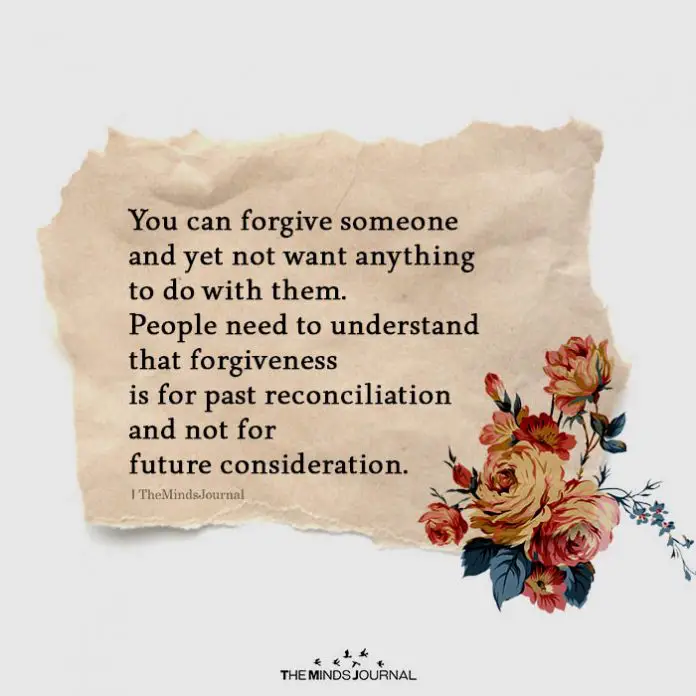
Forgiving someone is a difficult yet liberating process. Forgiveness requires a lot from us, especially when we are enveloped in negative feelings. However, when you know how to forgive someone and overcome bitterness, it can be highly rewarding. It is always a choice and never a compulsion. And when you choose to forgive someone who has wronged you, the other person’s behavior and actions lose all influence on you. It is an expression of our own personal control over our thoughts, feelings, and our life.
Read also: What is Forgiveness? How do I Forgive?
4 Stages of forgiveness
Forgiving someone is easier said than done and perhaps this is why it is often misunderstood. It is a process and not something you can do immediately. This is where the four steps to forgiveness comes in.
So what are the stages of forgiveness? The stages of forgiveness were developed by licensed psychologist Dr. Robert Enright. Being one of the leading researchers on the topic, he created a comprehensive model that can allow us to understand the process better and apply it in our lives more effectively.
Enright believes that forgiveness is the first step to healing yourself when you are at your worst.
After conducting different studies, Enright developed a model with around 20 stages which can be combined into the following four stages of forgiveness:
Stage 1: Uncovering
The first stage of forgiveness requires you to think about your pain. You must recognize, experience, and address your inner pain. Express your emotions and try to identify them. Think about:
- Who has hurt you?
- How have you been hurt?
- What specifically has made this experience so painful for you?
- How exactly do you feel?
- How will it affect your relationship?
This is one of the crucial stages of forgiveness that compel you to face your emotions and confront the experience and inner pain to fully understand what you are going through. It is only when you gain a complete understanding about the incident and your emotions, that you can start the process of forgiving.
Forgiveness can enable us to cope with all negative emotions like anger, anxiety, low self-esteem, and lack of confidence. Hence, we should always recognize our pain and suffering and acknowledge it in order to start the healing process. The more pain you have experienced, the more you need to practice forgiveness for emotional healing.
Read also: 4 Simple Tips To Practice Forgiveness and 4 Ways To Go About It
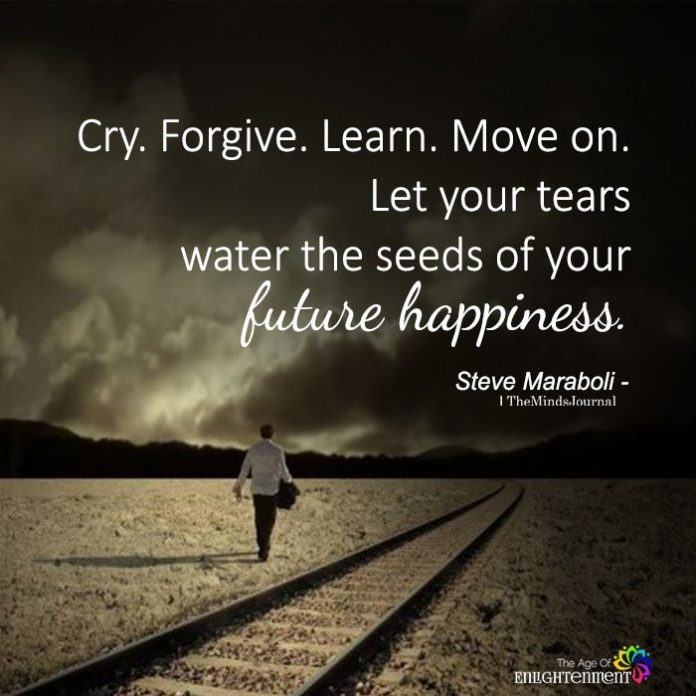
Stage 2: Deciding
Once you have addressed your inner feelings, you can now decide to begin the forgiveness stage. Actively deciding to forgive someone who has wronged you is one of the crucial stages of forgiveness. Although we can choose to forgive someone, it is often a natural process. Most of the time we decide to forgive the other person because we start to realize that negative feelings do not serve us in the long run. It is only by the forgiveness that we can start healing ourselves.
When talking about the 4 stages of forgiveness, the second stage begins when we realize that anger and resentment don’t make us feel better about the situation. We need to forgive as such difficult and destructive emotions can affect our physical health, mental stability, emotional balance and keep us from repairing relationships. Even though you may feel a sense of control or power when you refuse to forgive, it is nothing but a deception to hide your inner pain and insecurities.
Revenge may feel satisfying for the time being, but eventually, it will do more mental and emotional damage to you than you can imagine. You can never even out your pain by giving it back to someone. You can only alleviate your pain by healing yourself and letting go of your anger.
Forgiveness involves mercy, compassion, empathy, and goodness. It is about you choosing to be kind to someone who has wronged or hurt you, even though they may not be deserving of such kindness. Forgiveness is not about forgetting what they did to you or pretending that it did not hurt you. It is about deciding to move on and being stronger.
Forgiving others, and ourselves, can help to boost our self-esteem, increase our inner strength and help us experience a sense of safety. Forgiveness adds meaning & purpose to our lives and empowers us to move ahead in life with pride and joy.
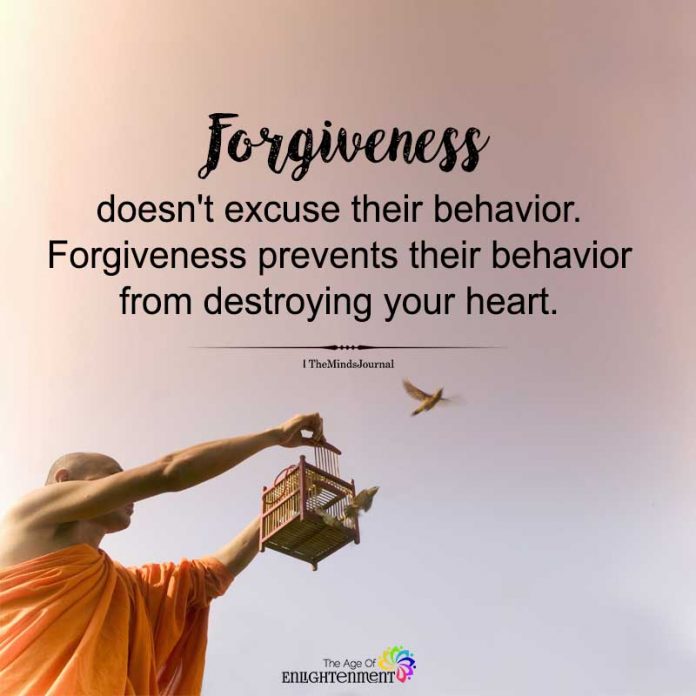
Stage 3: Working
This is where you actually start working on forgiveness. No, you don’t have to overlook or excuse the unacceptable behavior of the offender, neither you have to fix your relationship right away. This stage entails you to reframe your story and gain a new perspective and look at the incident from the point of view of the offender. This can help you be more objective and gain a better understanding. This can help you realize what has actually led to the situation to unfold the way it has. This is one of the stages of forgiveness that allows you to be more empathetic, compassionate, and human. This is when you accept your inner pain as a part of life and let go of all the anger and hatred you hold inside you. Now you offer leniency and mercy to them.
Here, you choose to acknowledge your pain for a brief moment of time and then shift your focus on letting go of those difficult emotions or repairing the relationship by working on the problem. Regardless, your decision to forgive will determine the course of your life from this point for the better.
Read also: Is Forgiveness Truly Possible In Relationships When Someone Has Hurt You Deeply
Stage 4: Deepening
After you have started working on giving forgiveness to someone who has wronged you, you will start experiencing the benefits of releasing negative emotions, like resentment, anger, and anxiety. This will also help you to understand the real meaning behind your negative experience and suffering. You will realize how this entire experience has led to the liberation of your inner self. How you have evolved as a human being and how your heart, mind, and spirit have grown. All this comes with forgiveness.
Looking for the meaning behind our suffering can be a significant help as it can help us gain a sense of purpose. Forgiveness can make people more resilient or courageous, while some of us may find that our negative or traumatic experience has changed our perspective on life. This can help us build new and more important long-term life goals.
How forgiveness can help you
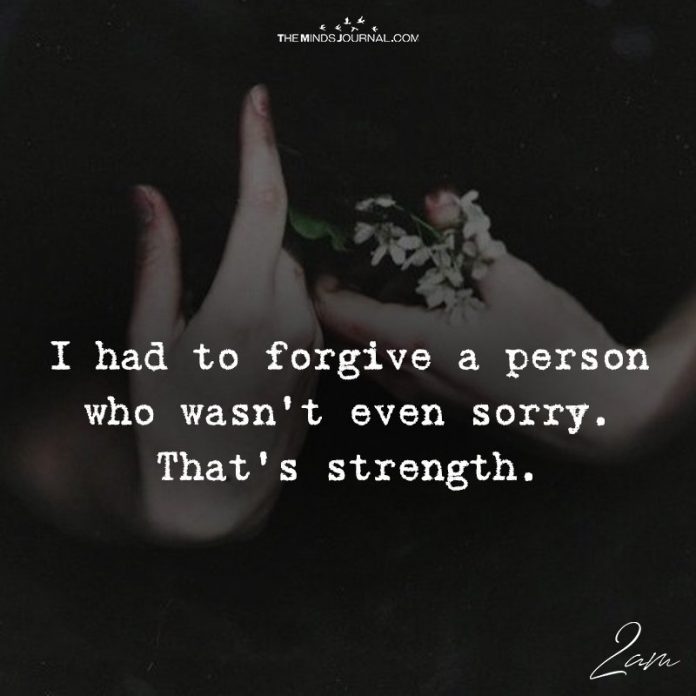
Going through the stages of forgiveness and forgiving others for their mistakes can help you heal psychologically and emotionally. Forgiveness is perhaps the best way for you to respond to a distressing situation. Several studies have found that forgiveness can actually be highly beneficial for our mental health. A 2016 study revealed that the emotion-focused coping process of forgiveness can help to alleviate psychological stress which can lead to poor health. {2} The study states that “increases in forgiveness were associated with decreases in stress, which were in turn related to decreases in mental health symptoms.”
Another 2019 study showed that forgiveness can help to improve both physical & mental health. {3} The study found that people who forgave their offenders, believed that the offender was “less responsible for the offense, judged the situation as less controllable by the offender and appraised the main cause of the event being more due to situational factors.” Forgiving others can also help to reduce anxiety, depression, uncontrollable anger, and posttraumatic stress disorder (PTSD) symptoms.
Read also: 7 Ways Forgiveness Can Transform Your Marriage
Choose forgiveness
When we look at the stages of forgiveness, it allows us to gain a clearer understanding of how forgiving someone can truly benefit us and heal us. Forgiveness allows us to transform hurt into hope and convert pain to inner peace. However, it depends on whether we choose to forgive the other person or not.
You need to understand and recognize the strength of your personal choice and how important it is to use that choice for your own mental and emotional well-being. Through forgiveness, you can bring back healing, happiness, and peace back into your life and in your relationships. Suffering enables us to mature, gain new awareness, and become humble and brave. It can empower us to encourage others to choose forgiveness and overcome suffering to eliminate hatred and violence from our communities. It can take the burden off your mind and heart and make you feel truly happy.
Dr. Robert Enright writes “When we overcome suffering, we gain a more mature understanding of what it means to be humble, courageous, and loving in the world.” It can empower us to encourage others to choose forgiveness and overcome suffering to eliminate hatred and violence from our communities. He concludes “All of these choices can lighten the heart and bring joy to one’s life.”

Now that you know about the four phases of forgiveness, no matter how hard it may seem to you, always choose forgiveness over pain.
Allow forgiveness to set you free.
Read also: How To Get Your Wife To Forgive You After You Screwed Up Badly
Here is an interesting video that you may find helpful:
Frequently Asked Questions (FAQs):
What happens when you don’t forgive people who hurt you?
When you hold on to grudges and don’t practice forgiveness, it can lead to persistent negative feelings like anger, hatred, resentment, bitterness, or vengeance. Moreover, it will also eat away at your mental peace, happiness, gratitude, and hope. It can also ruin your relationships.
Can you forgive someone if they hacked you?
Yes, you can and you should. Forgiving someone who took advantage of your trust and friendship will free you from the hurt and anger. However, you should consider whether you want to take any legal action against them or not. Forgiveness is practiced more for ourselves, than for the other person.
What is the correlation between forgiveness and longevity?
Research shows that forgiveness is associated with several health benefits, such as reducing stress, anxiety, depression, pain & blood pressure, and improving sleep and cholesterol levels. It can also reduce the risk of a heart attack.
Reference: 1. https://www.ncbi.nlm.nih.gov/pmc/articles/PMC4404749/ 2. https://www.ncbi.nlm.nih.gov/pmc/articles/PMC5055412/ 3. https://www.ncbi.nlm.nih.gov/pmc/articles/PMC6603330/
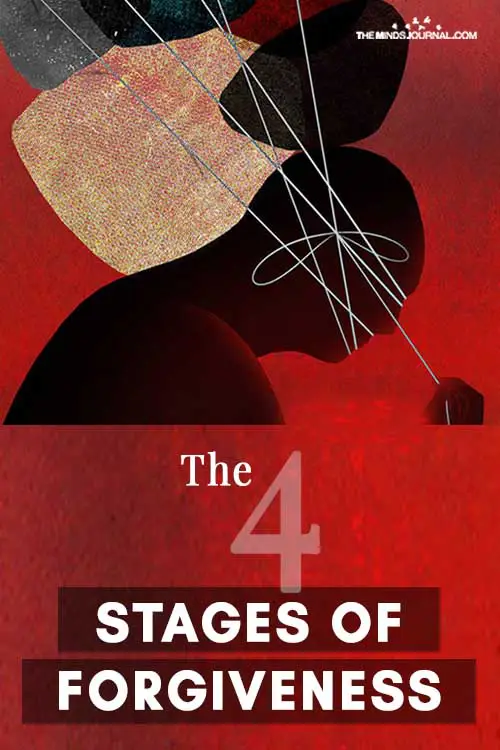
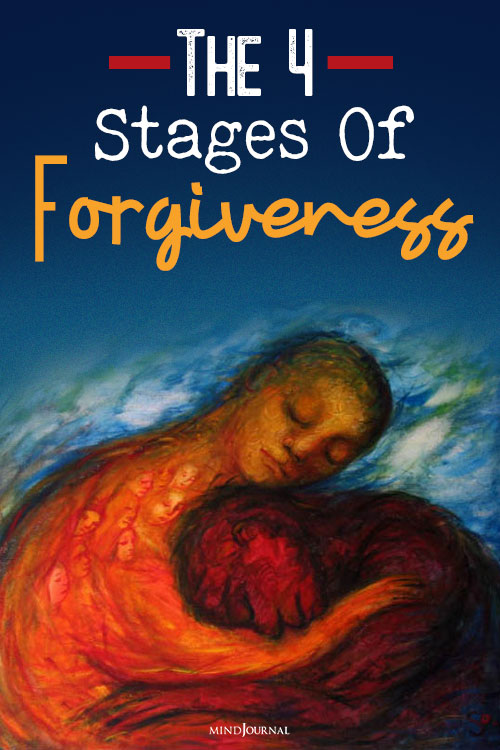
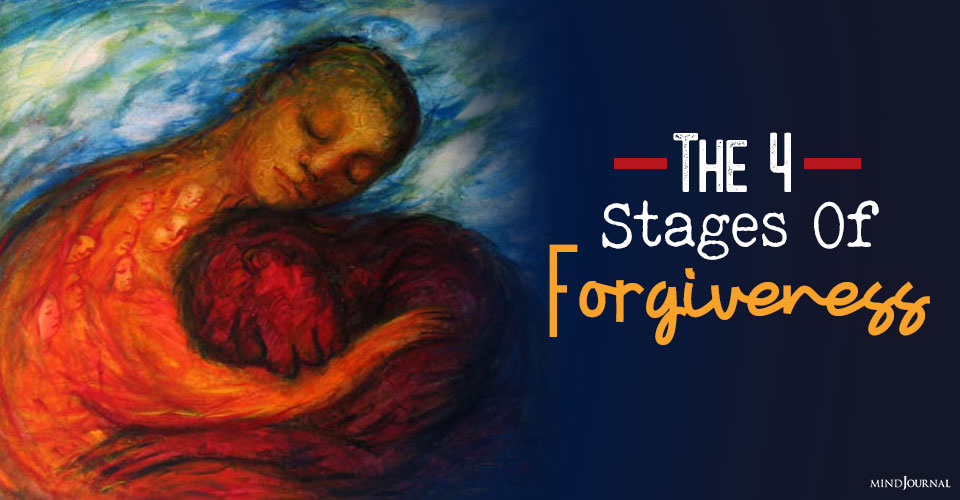






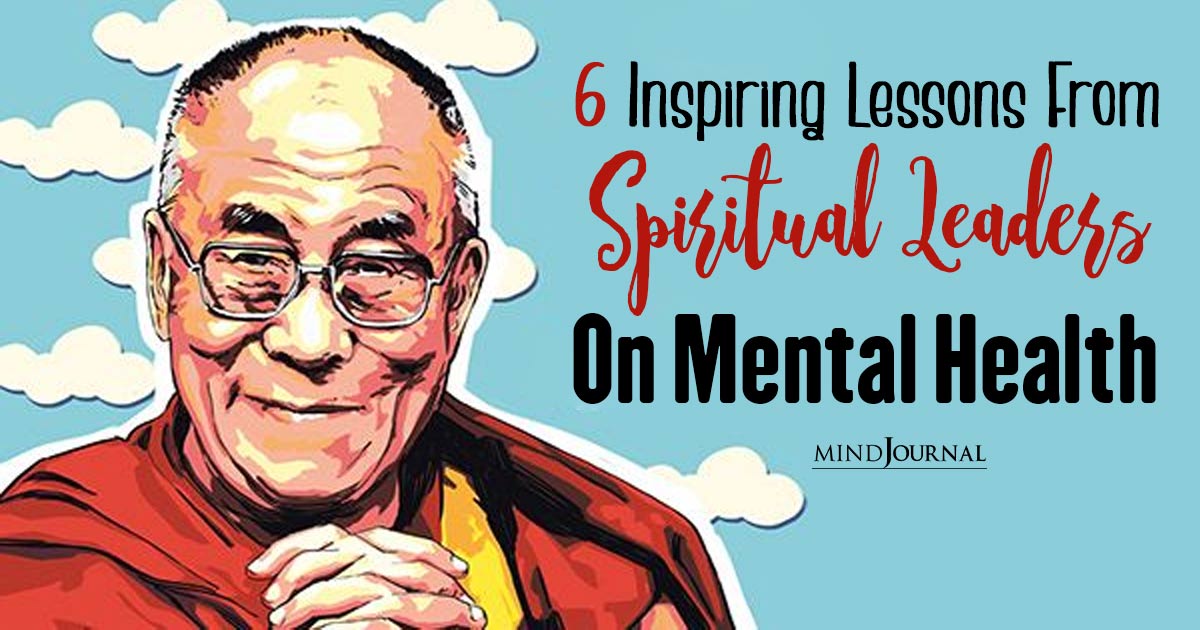
Leave a Reply
You must be logged in to post a comment.